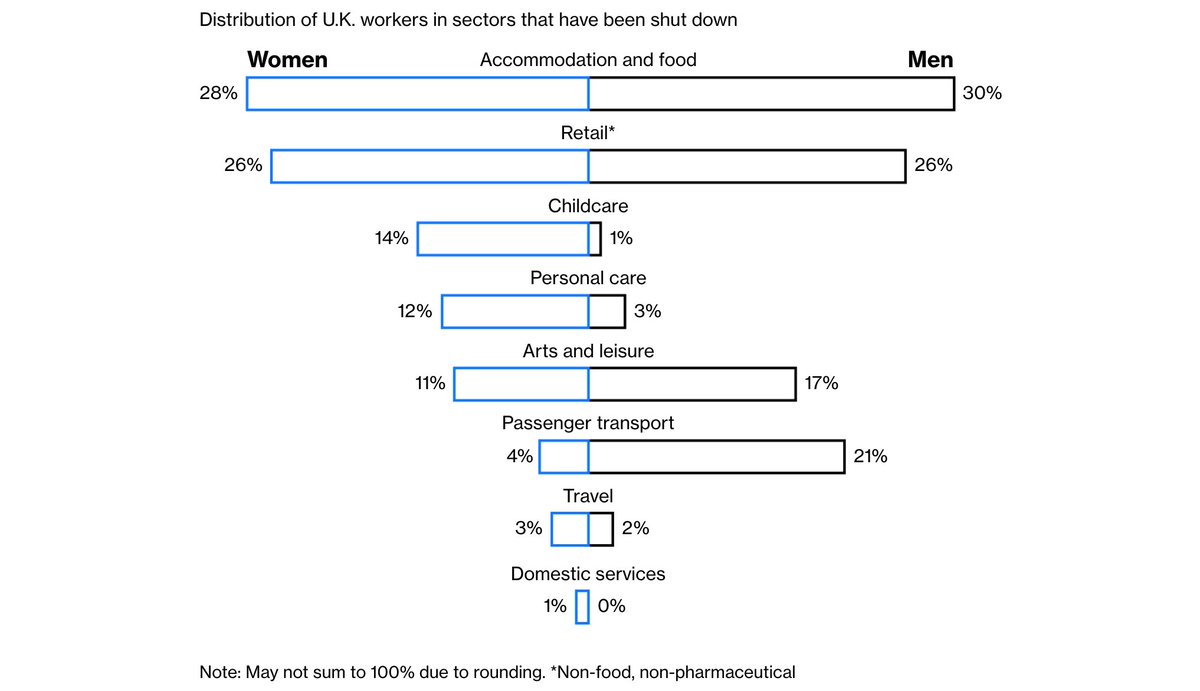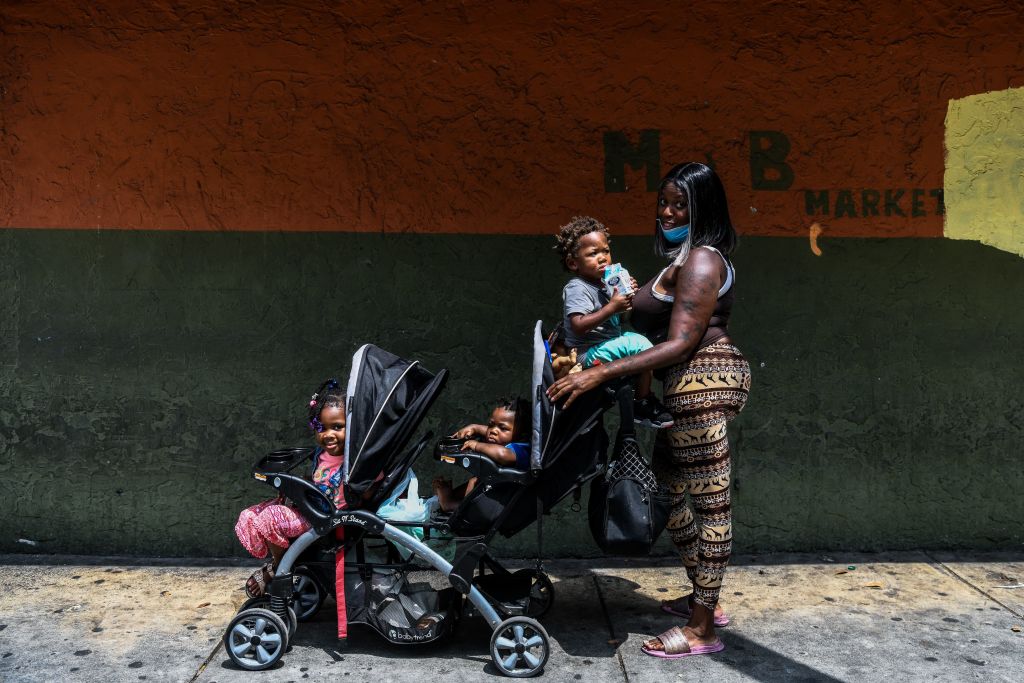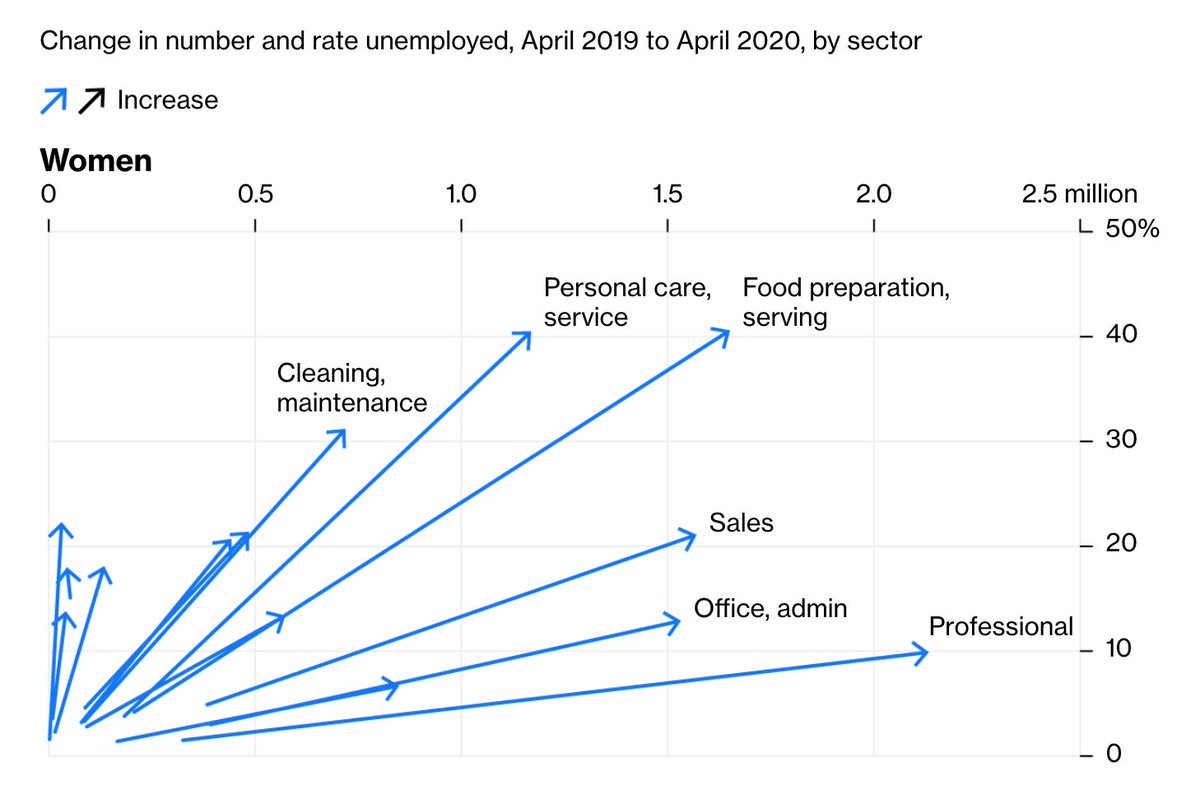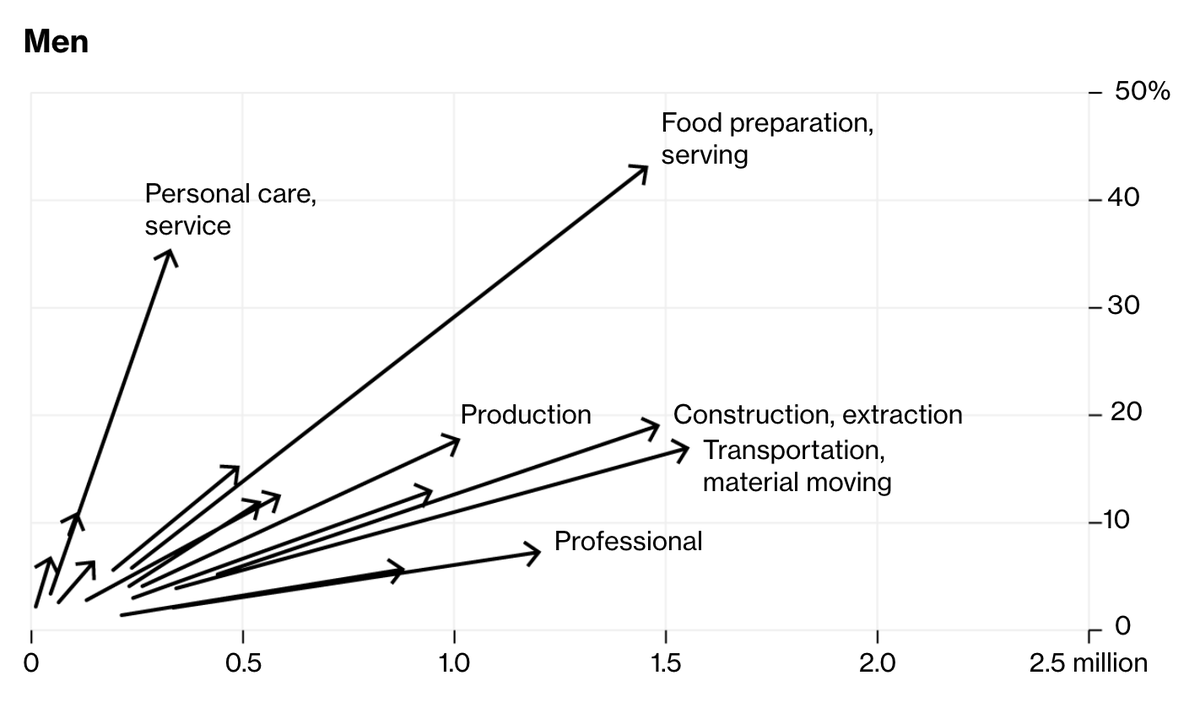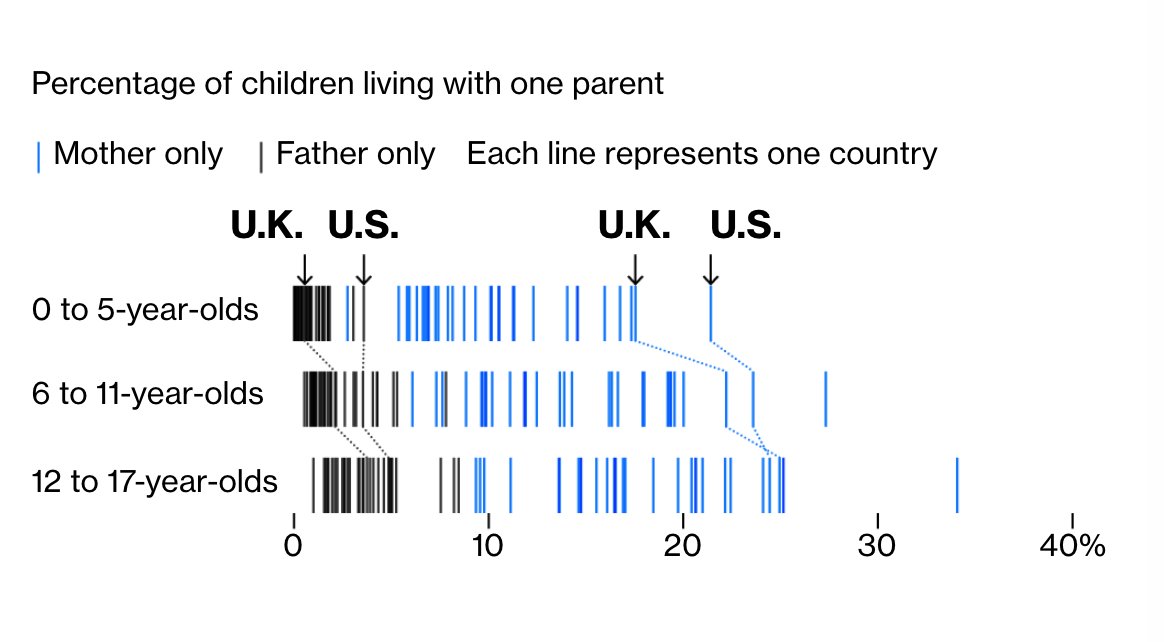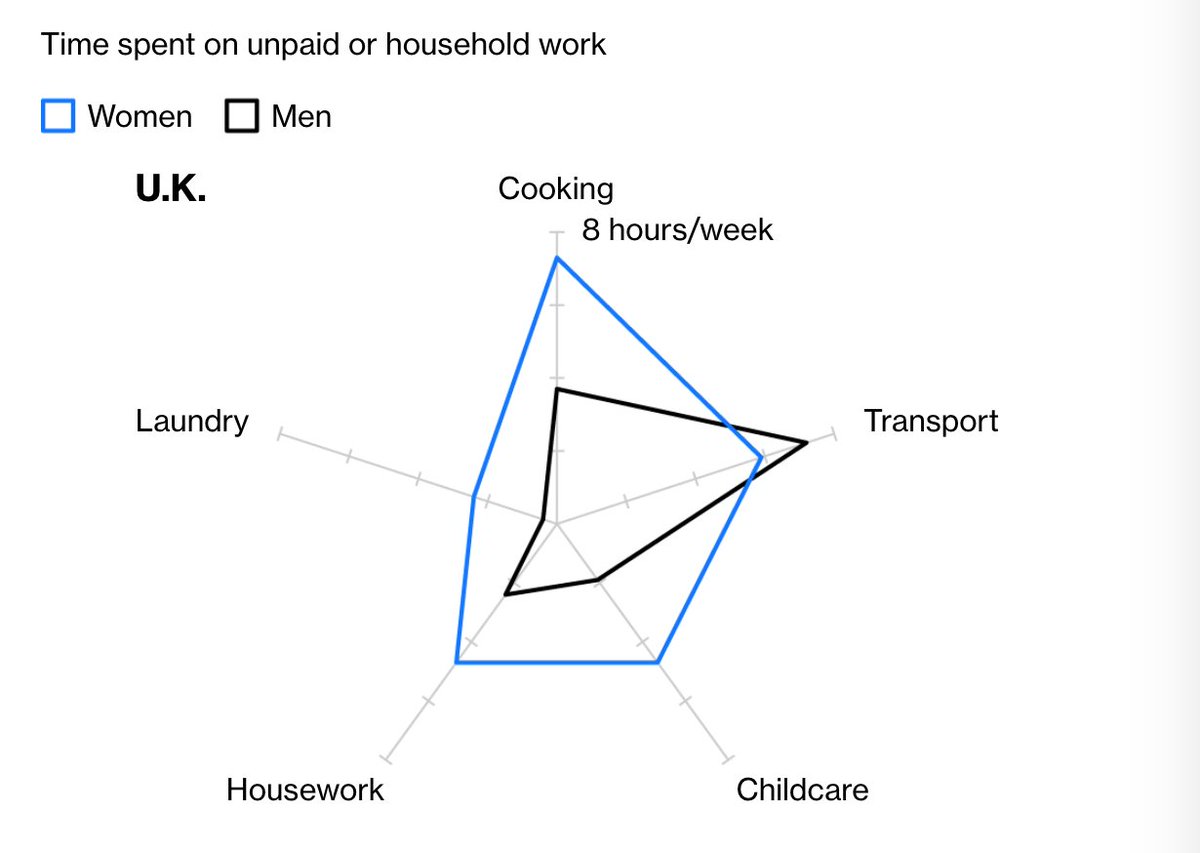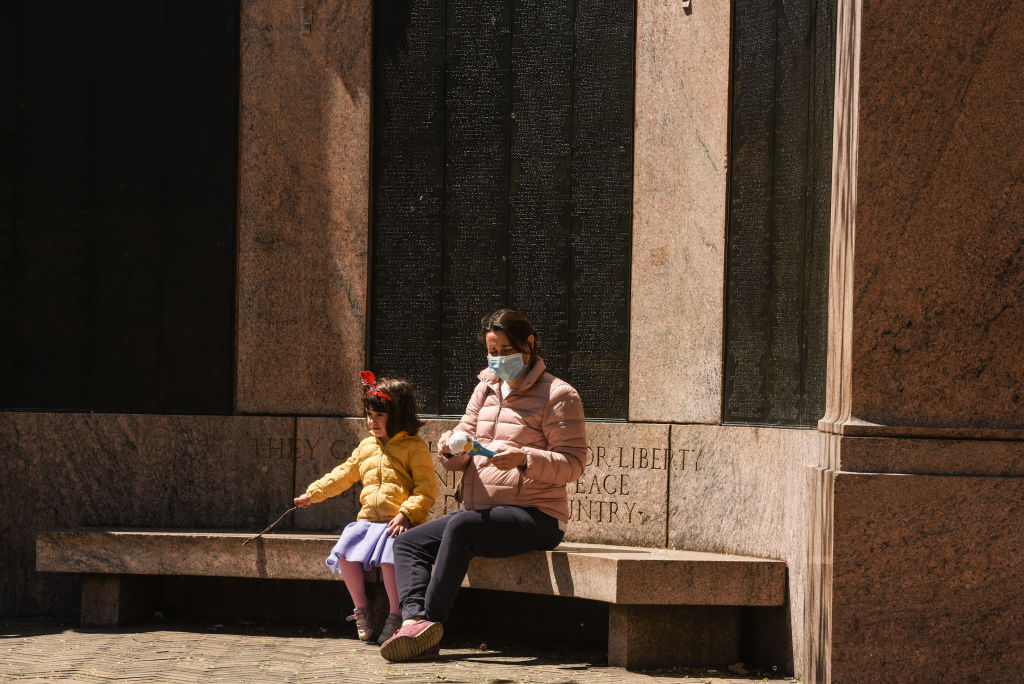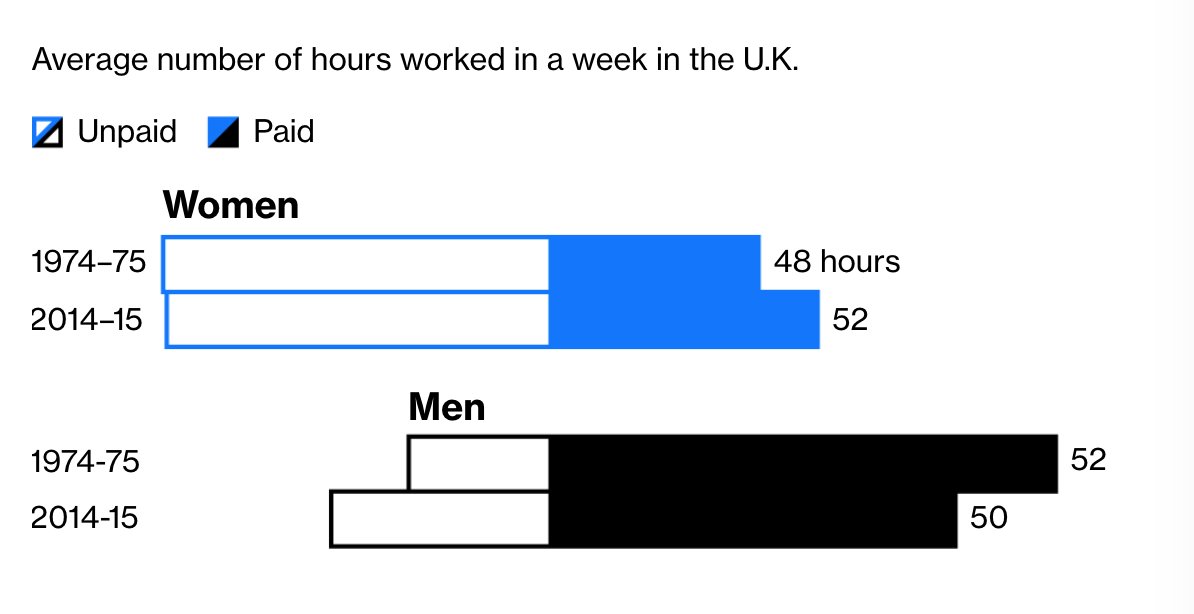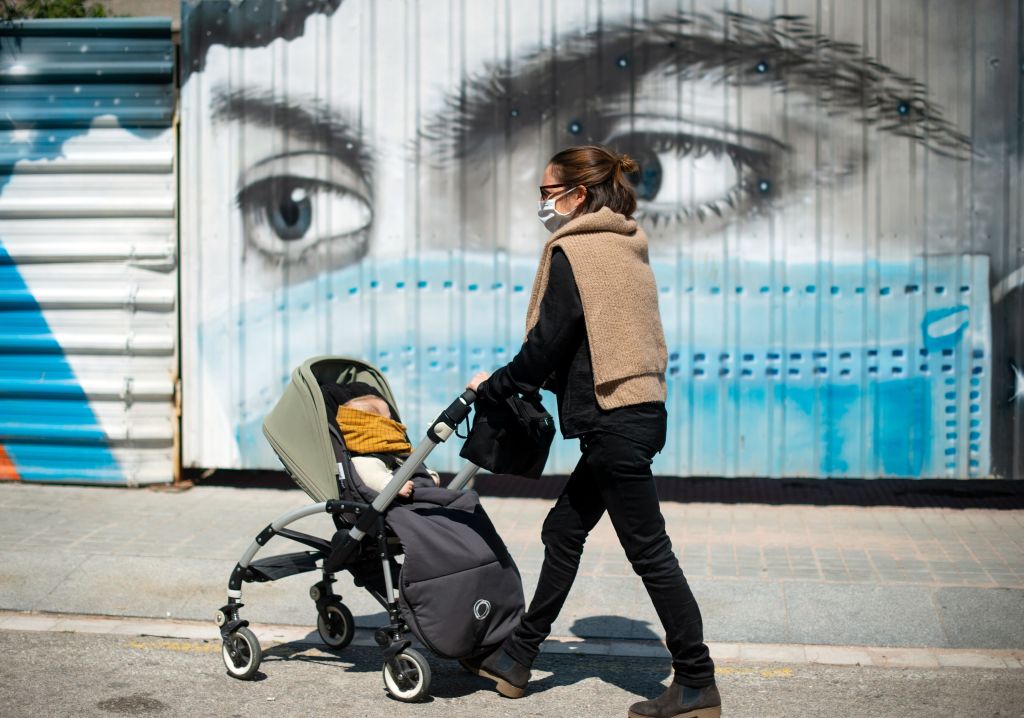Covid-19& #39;s devastation is not evenly distributed:
 https://abs.twimg.com/emoji/v2/... draggable="false" alt="♂️" title="Male sign" aria-label="Emoji: Male sign">The disease is deadlier in men
https://abs.twimg.com/emoji/v2/... draggable="false" alt="♂️" title="Male sign" aria-label="Emoji: Male sign">The disease is deadlier in men
 https://abs.twimg.com/emoji/v2/... draggable="false" alt="♀️" title="Female sign" aria-label="Emoji: Female sign">The economic fallout hits women harder
https://abs.twimg.com/emoji/v2/... draggable="false" alt="♀️" title="Female sign" aria-label="Emoji: Female sign">The economic fallout hits women harder
Unlike the last recession, the current downturn is disproportionately hurting women’s employment https://trib.al/grpj1KK ">https://trib.al/grpj1KK&q...
Unlike the last recession, the current downturn is disproportionately hurting women’s employment https://trib.al/grpj1KK ">https://trib.al/grpj1KK&q...
This recession is tougher for women because...
1) This crisis has battered sectors where women’s employment is concentrated
2) Shutdowns have closed schools and daycares, keeping kids at home and making it even harder for parents to keep working https://trib.al/grpj1KK ">https://trib.al/grpj1KK&q...
1) This crisis has battered sectors where women’s employment is concentrated
2) Shutdowns have closed schools and daycares, keeping kids at home and making it even harder for parents to keep working https://trib.al/grpj1KK ">https://trib.al/grpj1KK&q...
April jobs data from the U.S. show that unemployment has risen more sharply among American women than men.
Male unemployment rate: 13.3%
Female unemployment rate: 15.7% https://trib.al/grpj1KK ">https://trib.al/grpj1KK&q...
Male unemployment rate: 13.3%
Female unemployment rate: 15.7% https://trib.al/grpj1KK ">https://trib.al/grpj1KK&q...
When looking at unemployment rates by gender and race, there& #39;s an even bleaker picture for women of color.
White women: 14.6%
Black women: 15.8%.
Hispanic and Latina women: 19.8% https://trib.al/grpj1KK ">https://trib.al/grpj1KK&q...
White women: 14.6%
Black women: 15.8%.
Hispanic and Latina women: 19.8% https://trib.al/grpj1KK ">https://trib.al/grpj1KK&q...
Employment losses in leisure and hospitality were particularly severe in April — the data show employment in this sector plunged by 7.7 million, or 47%.
Employment in education and health services also took a nose dive, losing 2.5 million jobs https://trib.al/grpj1KK ">https://trib.al/grpj1KK&q...
Employment in education and health services also took a nose dive, losing 2.5 million jobs https://trib.al/grpj1KK ">https://trib.al/grpj1KK&q...
With millions of children stuck at home, childcare and education is undoubtedly cutting into parents& #39; ability to work.
This is especially problematic for single parents. In the U.S., single moms make up nearly 70% of all single-parent households https://trib.al/grpj1KK ">https://trib.al/grpj1KK&q...
This is especially problematic for single parents. In the U.S., single moms make up nearly 70% of all single-parent households https://trib.al/grpj1KK ">https://trib.al/grpj1KK&q...
Shutdowns also create more housework, cooking and cleaning.
For decades, women in heterosexual couples have done the majority of this unpaid work — even when they out-earn their husbands https://trib.al/grpj1KK ">https://trib.al/grpj1KK&q...
For decades, women in heterosexual couples have done the majority of this unpaid work — even when they out-earn their husbands https://trib.al/grpj1KK ">https://trib.al/grpj1KK&q...
This unequal division of labor likely hasn’t changed that much since the onset of the pandemic.
The @nytimes found that some men are oblivious to this: 45% of surveyed men believed they spent more time homeschooling, but only 3% of women agreed https://trib.al/grpj1KK ">https://trib.al/grpj1KK&q...
The @nytimes found that some men are oblivious to this: 45% of surveyed men believed they spent more time homeschooling, but only 3% of women agreed https://trib.al/grpj1KK ">https://trib.al/grpj1KK&q...
Women are doing the same amount of housework they were doing in the 70s, but they’re also doing more paid work.
When you include both paid and unpaid labor, men work about two hours less than women each week https://trib.al/grpj1KK ">https://trib.al/grpj1KK&q...
When you include both paid and unpaid labor, men work about two hours less than women each week https://trib.al/grpj1KK ">https://trib.al/grpj1KK&q...
Historically, disruptions like the one we’re living through can lead to lasting social change.
If policymakers and employers design recovery efforts with gender equality in mind, it would create a more level playing field in the future https://trib.al/grpj1KK ">https://trib.al/grpj1KK&q...
If policymakers and employers design recovery efforts with gender equality in mind, it would create a more level playing field in the future https://trib.al/grpj1KK ">https://trib.al/grpj1KK&q...

 Read on Twitter
Read on Twitter